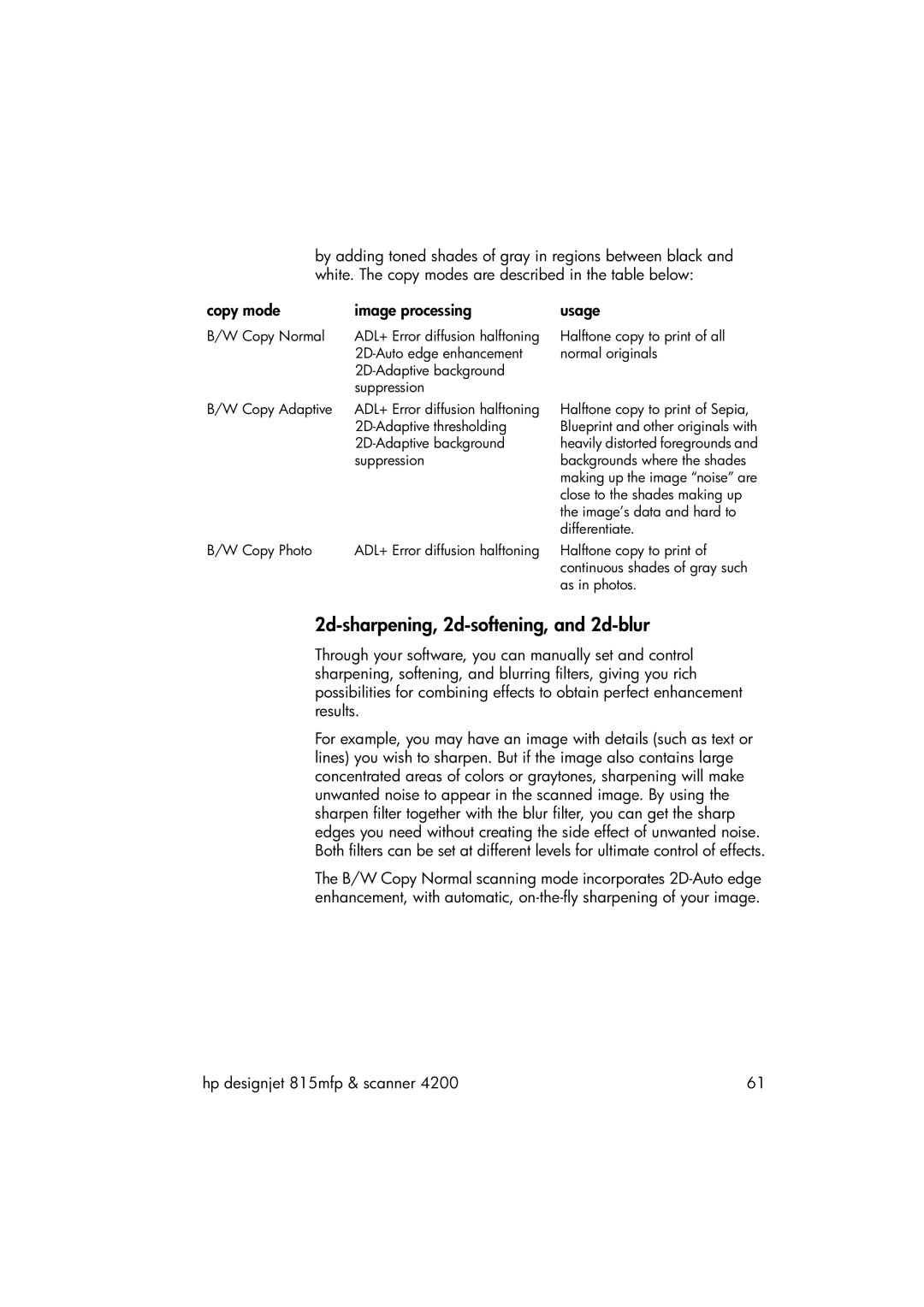by adding toned shades of gray in regions between black and white. The copy modes are described in the table below:
copy mode | image processing |
B/W Copy Normal | ADL+ Error diffusion halftoning |
| |
| |
| suppression |
B/W Copy Adaptive | ADL+ Error diffusion halftoning |
| |
| |
| suppression |
B/W Copy Photo | ADL+ Error diffusion halftoning |
usage
Halftone copy to print of all normal originals
Halftone copy to print of Sepia, Blueprint and other originals with heavily distorted foregrounds and backgrounds where the shades making up the image “noise” are close to the shades making up the image’s data and hard to differentiate.
Halftone copy to print of continuous shades of gray such as in photos.
2d-sharpening, 2d-softening, and 2d-blur
Through your software, you can manually set and control sharpening, softening, and blurring filters, giving you rich possibilities for combining effects to obtain perfect enhancement results.
For example, you may have an image with details (such as text or lines) you wish to sharpen. But if the image also contains large concentrated areas of colors or graytones, sharpening will make unwanted noise to appear in the scanned image. By using the sharpen filter together with the blur filter, you can get the sharp edges you need without creating the side effect of unwanted noise. Both filters can be set at different levels for ultimate control of effects.
The B/W Copy Normal scanning mode incorporates
hp designjet 815mfp & scanner 4200 | 61 |
